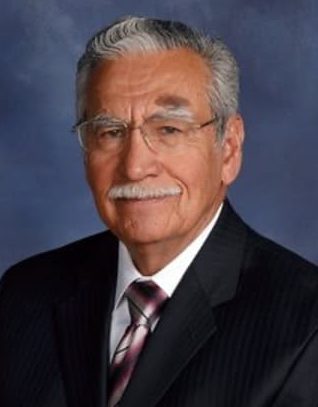The Pastor's Attitude Toward Other Leaders
Our attitudes define us. Proverbs 23:7 states, “For as he thinks within himself, so he is” (NASB). In a recent exposition of 1 Peter 5:1-4, I was impressed with Peter’s emphasis on biblical leadership attitudes. The pastor’s attitude will determine how he leads.
Peter’s Biblical Leadership Principles
Biblical leadership is not a lone wolf operation. It’s a plurality of leadership working together to build the church of Jesus Christ. Hence pastors are called by God to see themselves as a band of brothers, “standing firm in one spirit, with one mind striving together for the faith of the gospel” (Philippians 1:27). This requires that we have the proper attitude towards one another just as the New Testament leaders had towards their fellow workers (Romans 16:1-16, 21-23; Hebrews 13:23-25; 2 John 1-2). Our progress in ministry will depend much on our attitude towards our fellow leaders. Here is where the Apostle Peter is of great help to us.
Peter begins by exhorting the elders of the churches scattered throughout Asia Minor: “Therefore, I urge elders among you, as your fellow elder and a witness of the sufferings of Christ, and one who is a fellow partaker of the glory that is to be revealed” (1 Peter 5:1). In this exhortation, Peter exemplifies what a pastor’s attitude should be towards his fellow leaders. It should be one of gospel solidarity. However, even pastors can become infected with rivalry (Luke 22:24-27), petty jealousy and strife (Philippians 1:15–17), and disdain for other leaders (3 John 9-11). Pastors need to regularly check up on their attitudes towards one another, using Peter’s example as the standard.
How Biblical Leadership Principles Promote Unity Among Pastors
Peter identifies himself as a “fellow partaker of the glory that is to be revealed” (1 Peter 5:1). He is just another sinner covered by the blood of Christ and awaiting his glorious inheritance (1 Peter 1:3-5). Leaders must remember they are sinners saved by grace and view other pastors as the same (1 Timothy 1:15). The pastorate can be lonely. Why not make fellow pastors our friends? Why not view them as brothers in Christ and capitalize on our commonalities?
See Them as Fellow Elders
Peter also calls himself a “fellow elder” in spite of the fact that he’s “an apostle of Jesus Christ” (1 Peter 1:1). Instead of adopting a “top-down” attitude, Peter adopts a “same as you” attitude. Unfortunately, many ministry relationships are defined by rank, titles, and accomplishments.
Here, Peter displays an attitude of respect for his fellow elders that has nothing to do with their abilities or the size of their churches. We are called upon by God to have a high respect for
those who lead Christ’s church. The Scriptures say, “But we request of you, brethren, that you appreciate those who diligently labor among you, and have charge over you in the Lord and give you instruction and that you esteem them very highly in love because of their work” (1 Thessalonians 5:12-13). The same respect is praised in 1 Timothy 5:17 and 1 Corinthians 16:15-18. The fact that other pastors have the same calling makes them worthy of our respect, regardless of church size or academic accolades.
See Them as Fellow Workers
The Christian ministry is often plagued with jealousy, rivalry, and lack of cooperation (Philippians 1:15-18). The average pastor sees himself as a “lone wolf,” exhausting himself in an often futile effort to build a church in the domain of darkness. Our attitude produces this dreary landscape. But Peter demonstrates how biblical leadership attitudes can brighten the atmosphere of our ministries. He calls himself “a witness of the sufferings of Christ.” And is this not the true title of every pastor called to declare the Word?
Likewise, Paul’s remedy for the bitter rivalry that exists among the church leaders is to see ourselves for what we really are, fellow servants of Christ (1 Corinthians 3:5-9; 4:1-2). What we need is more cooperation in our labors, more serving one another, more dependence on God who causes the growth, more glory given to Him for whatever success there is, and more rejoicing in the progress of the Gospel. Like Paul, we should be glad to appreciate our fellow workers in the ministry (Romans 16:1-2; Philippians 2:29-30).
Biblical Leadership Attitudes Strengthen Our Ministries
King Solomon was a wise leader and offered this counsel as a key to personal and professional success: “Two are better than one because they have a good return for their labor; for if either of them falls, the one will lift up his companion. But woe to the one who falls when there is not another to lift him up! Furthermore, if two lie down together they keep warm, but how can one be warm alone? And if one can overpower him who is alone, two can resist him. A cord of three strands is not quickly torn apart” (Ecclesiastes 4:9-12). This reaffirms Peter’s insight into having the proper attitude towards our fellow pastors. Let’s learn the value of prizing our fellow elders and of working together for God’s glory and our good.
©2024 Alex Montoya. Used with permission.
About The Author

Alex Montoya
Alex D. Montoya is the senior pastor at First Fundamental Bible Church in Whittier, Calif. He is the author of the book, Preaching with a Passion.








